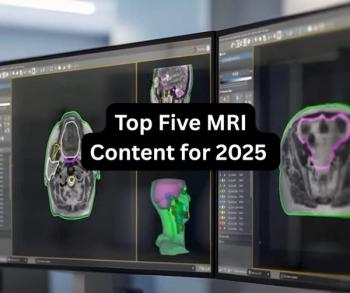
New device provides e-mail ECG service
Recent advancements in electrocardiogram recording and encryption allow digital storage and secure e-mail transmission, reducing report turnaround time by two to three weeks.
Recent advancements in electrocardiogram recording and encryption allow digital storage and secure e-mail transmission, reducing report turnaround time by two to three weeks.
One PC-based recorder developed in Scotland provides a 12-lead ECG in an encrypted file sufficiently small to be transmitted easily by e-mail. A 30-second recording results in a file of only about 50 KB (J Telemed Telecare 2008;14:219-220).
"One of the biggest barriers to accurate diagnosis of cardiac conditions in primary care is accurate ECG analysis, but paper copies that are faxed or mailed by physicians to cardiologists for opinion are slow and are often lost or of poor quality," said Dr. Stephen Leslie, a consultant cardiologist at Raigmore Hospital in Inverness.
The Scottish system allows direct, secure e-mail of ECGs to secondary care staff.
"The paper was an initial feasibility study, but we are now moving into clinical application of this and hope to be able to assess the impact this device may have on clinical practice," Leslie said.
Leslie has already found that the quality of ECG transmission via e-mail was better when compared with traditional faxed ECGs, which tend to blur or drop data. The study also found that e-mail transmission of an ECG was significantly faster than use of the postal service.
"We found that sending encrypted ECGs by e-mail was easy and reduced the average delay in response by 19 to 20 days," Leslie said.
Electronic transmission of ECGs is not novel. Current systems that rely on mobile phone or radio technology can be expensive, however, and they often provide only three-lead electrocardiograms.
The Leslie study employed a PC-based recorder (DAN Medical Analysis System, Inverness) that provides an encrypted 12-lead ECG. The recipient requires analysis software that is available as a free download.
Although many clinicians are competent at standard ECG interpretation, skill and confidence vary among individuals.
"Interpretation of some ECGs can be difficult, and expert advice on ECG interpretation and patient management is often required," Leslie said. "While expert evaluation may not always be urgent, a prompt opinion is desirable, especially if this will result in a change to patient management."
DAN Medical recently established an online ECG training post for local clinicians.
"In the first week, over 100 primary physicians signed up, which represents 40% of the clinicians in our area, further illustrating the anxiety surrounding ECG interpretation and the benefit of better communication with specialists," he said.
Newsletter
Stay at the forefront of radiology with the Diagnostic Imaging newsletter, delivering the latest news, clinical insights, and imaging advancements for today’s radiologists.













